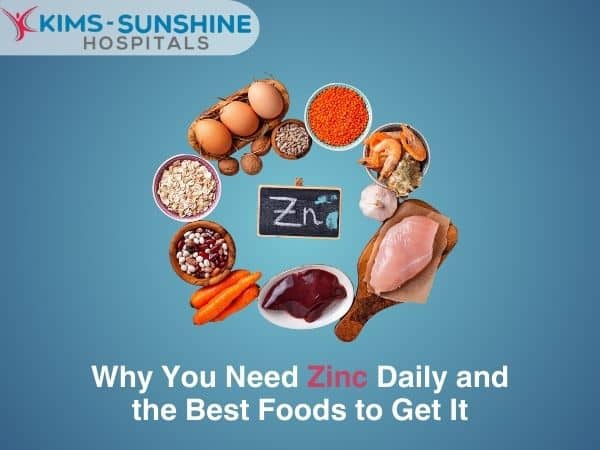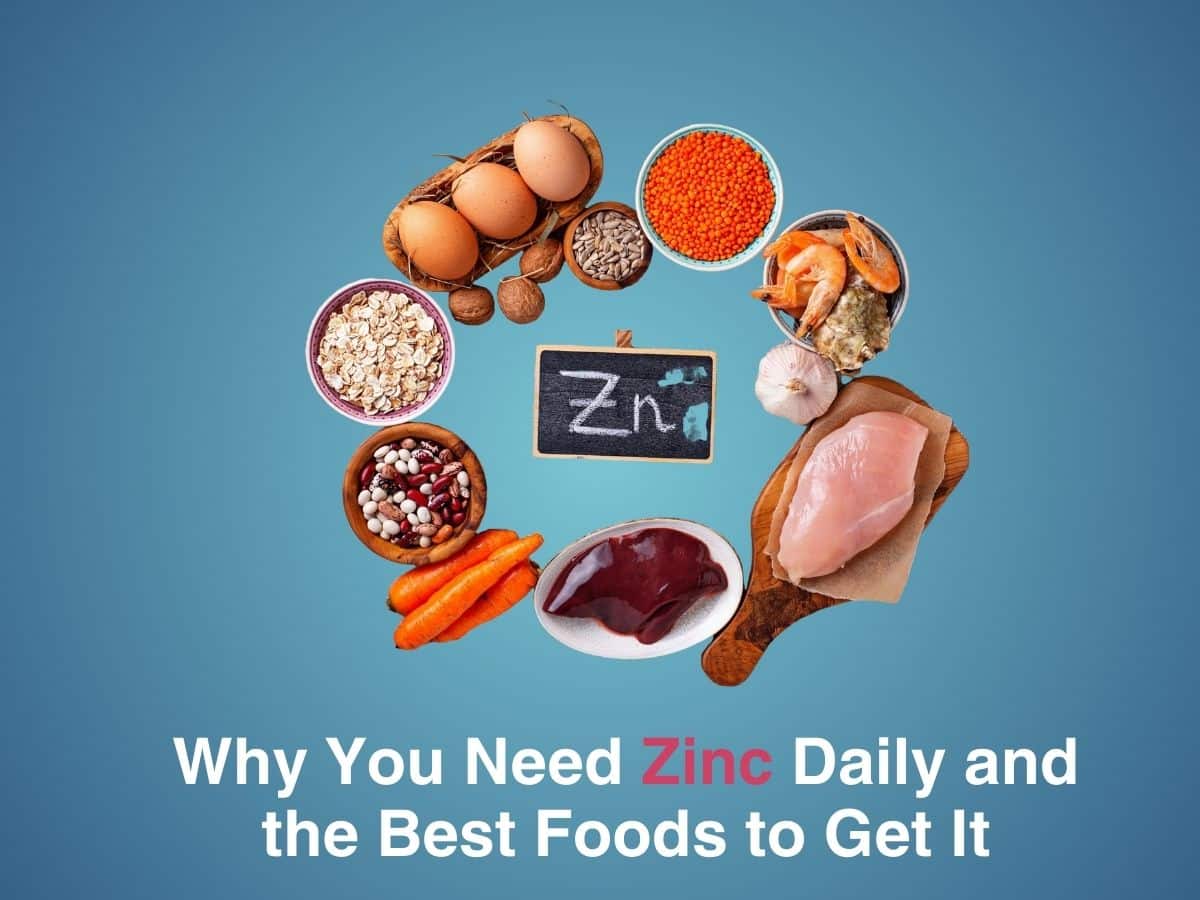
Why you Need Zinc Daily and the Best Foods to Get It

Think of zinc as an all-rounder – it helps maintain multiple bodily functions at the same time. Very little is needed to do just about anything in your body. You can think of it as a trusty mineral helper for hundreds of enzymatic functions. It is an antioxidant and hence helps get rid of free radicals. It is normally found in enough quantities in animal based products- like meat, seafood, eggs, dairy products like milk, curd, cream, cheese, ghee, butter etc. though it is NOT absent in plant based foods. You will just need to eat a lot of beans, whole grains, fresh greens or nuts to get the same amount of zinc.
Health Benefits Of Daily Zinc Intake-
We have rounded up at least 12 different functions in our body that zinc is crucial for. Let us look at them one by one-
- For preventing oxidative stress: The breakdown of foods and respiration can cause an increase in the production of free radicals. Zinc is a part of a large group of enzymes that help reduce this superion production. Chronic health conditions like diabetes or high blood pressure may be due to free radical increase too. So, supplementing with zinc could probably be helpful.
- Immunity: The immune system heavily relies on zinc to help fortify its functions. Low zinc levels can mean opportunistic infections affecting deficient individuals.
- Stop prolonged bouts of diarrhoea: If an individual or baby has persistent diarrhoea due to an improper diet, zinc supplements are seen to help.
- Maintaining skin integrity and promote wound healing: low zinc reserves have shown to correspond with slower wound healing processes. But, we don’t know how precisely zinc seems to help.
- For eye health: zinc supplements are seen to help in preventing macular degeneration.
- Skin related conditions like acne, diaper rash, atopic dermatitis: all of which connect with better wound healing properties when zinc is involved.
- Men’s sexual wellness: Zinc is said to help maintain hormone balance and sperm health due to its antioxidant property.
- Deficiency of zinc has been linked to conditions like tingling, migraines, headaches etc. which are caused due to low amounts of micronutrients.
- It is good for your gut: zinc helps repair cells that line the intestinal tract, which means better absorption of nutrients from food.
- It is good for bone health too.
- For good thyroid gland functioning, zinc is needed
- Zinc is necessary for blood to clot properly
How Much Zinc Do You Need Daily For Optimal Health?
For men, it is about 11 mg per day while women require 8 mg per day. Pregnant and breastfeeding women require more- almost 12 mg per day. The good news is it is not a scarce nutrient and is found in most food sources. You can check for zinc reserves with simple blood tests and if it is on the lower end, you can talk to your doctor about supplementation. Too much of a good thing can also be bad- high levels of zinc can be toxic and you can notice symptoms like nausea, vomiting, metallic taste in the mouth, abdominal issues, diarrhoea and even severe headaches. When you have a deficiency, you may display symptoms like hair loss, eye and skin related issues, not have a decent appetite, while teenagers may not mature sexually at the right age.
Zinc Supplements vs. Natural Food Sources: Which Is Better?
We have compiled a list of items you can eat, for better zinc levels-
- Oysters are very rich in zinc
- Red meat like beef and pork
- Crab meat is also a great option
- Oats- any way you eat it is good for you
- Milk- 1mg per cup of milk
- Eggs
- Seafood in general
- Peanuts
- Greens
- Lentils
Zinc supplements tend to interfere with others like iron and calcium, so timing them becomes important. If you need to take antacids, then zinc supplements may not work as well, as zinc is best metabolised in an acidic environment. Again, you should talk to your doctor about timing your dose right.
Conclusion
Zinc is an all-encompassing mineral that is required in very minor quantities. It still manages to get a lot of work done. Growing infants and kids need lots of zinc, while adults require slightly lesser amounts everyday. If you have got a very picky eater at home, then you should consider supplementation for best results. Finally, we think that you should try to design a zinc-inclusive diet with all the options you normally prefer to eat, rather than relying on supplements alone. So, let us know your thoughts on supplements and how zinc may be useful in other aspects!






